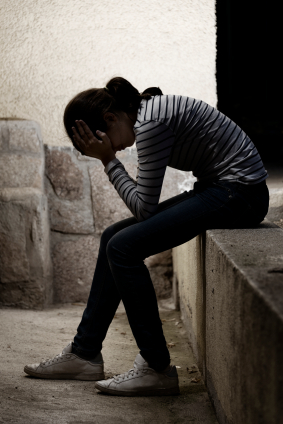Witnessing a crime or a violent situation may have a negative impact on our emotional and psychological well-being.
The way the witness is affected by the experience differs with:
-
His/her age. When the witness is older, he/she may have more knowledge and more ability to handle the situation on his/her own and to act upon what is happening with more confidence and safety.
-
The previous relationship with the people involved (e.g. victim, offender or both). It may be more difficult to deal with and accept a situation of violence or crime that happened between people the witness is close to.
-
The type of violence witnessed. Seeing or hearing episodes of severe physical violence or violent crimes (e.g., involving the use of weapons) may cause more negative emotional impact.
-
The number of times the witness saw or heard episodes of violence/crimes. When the witness saw or heard a violent situation or a crime repeatedly over time, intense negative emotions may arise, such as guilt, hopelessness or frustration (related to the fact that the witness feels that he/she was not able to do anything to prevent the situation).
![]()
Witnessing a crime or violent situation may not damage us physically (meaning that we weren’t injured during the situation), but may cause some emotional problems.
Some witnesses feel:
-
in shock;
-
unable to react;
-
confused:
-
when the situation involves people who the witness knows, there may be mixed feelings (e.g., feeling affection towards the offender and, at the same time, disliking or disagreeing with what he/she did);
-
the mood becomes confusing as well - being calm and happy and feeling sad and "down" a few seconds later;
-
-
sad:
-
sadness can be more intense when the situation involves people closer to the witness (friends or family, for example);
-
-
frightened;
-
insecure;
-
anxious, worried and distressed - frequent thoughts and memories about what happened may occur;
-
extremely alert regarding everything that happens around (feeling constantly afraid that the situation might happen again) and intense fear for his/her own life;
-
afraid that something bad might happen or afraid of being abused, attacked or “caught” by the offender;
-
guilty and ashamed because of having not helped the victim or felt frightened and frozen while the situation was underway;
-
worried and insecure about giving evidence in Court (search on Going to Court for more details).
![]()
Some health issues may appear:
-
sleeping problems (e.g. nightmares about what happened);
-
nausea, vomiting, dizziness;
-
headaches;
-
loss of appetite;
-
frequent crying;
-
memory difficulties (e.g. not remembering when or where something important happened);
-
concentration problems (e.g. get easily distracted by things that are happening around while studying).
 |
Behavioral changes may also arise:
|
![]()
PLEASE NOTE!
|
Emotional reactions are a natural response to an experience that can threaten our well-being and personal safety. Emotional symptoms should lessen over time. If symptoms (emotional; physical or behavioral) persist or if you feel the same way you felt when the crime or violence happened, talk to an adult you trust: tell your parents, to your school psychologist or counselor. |








